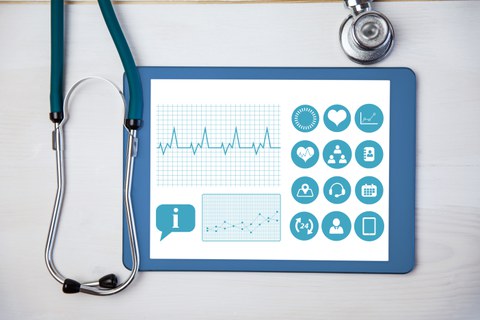Mar 20, 2024
Cybersecurity for medical infrastructure: insights from an imagined case study
The Hospital at Home concept (HaH) integrates key technologies and concepts of digital medicine into a single platform approach that combines telemedicine, wearables, and sensors. Although the concept itself is not new, it only became increasingly popular during the COVID-19 pandemic – particularly in Switzerland, the UK and the USA. In Germany, on the other hand, the HaH approach has not been used widely so far. However, treatment at home offers advantages for patients. They have the opportunity to stay with their relatives and are exposed to a lower risk of hospital infections. Moreover, it may lead to efficiency savings, through its seamless integration of data flows. Therefore, it is likely to become an increasingly implemented model in the future.
In their recent News & Views article published in the Nature Portfolio Journal “npj Digital Medicine”, Prof. Stephen Gilbert, Francesco Ricciardi, PhD, Tauseef Mehrali and Prof. Constantinos Patsakis explore potential scenarios if such platforms and infrastructures are attacked. They emphasize the necessity for careful risk assessment, planning, monitoring, and defense-in-depth approaches to protect this care model against cybersecurity vulnerabilities. The healthcare system is developing around digital technologies, particularly in relation to HaH approaches. Cybersecurity risks should be recognised as critical infrastructure risks that could cause a major public health emergency. The risks associated with networked care delivery go beyond data loss or harm to individual patients. Therefore, they should be given top priority, and budgets should be allocated accordingly.
The publication is a joint effort of partners within the EU-funded Horizon Europe project “CYMEDSEC”. The project consortium brings together experts from regulatory, cybersecurity, technology, and clinical fields. It is composed by TUD Dresden University of Technology (Germany) together with the Vrije University of Bruxelles (Belgium), Barkhausen Institute (Germany), Athena Research Centre (Greece), Casa Sollievo della Sofferenza Foundation (Italy), Secunet (Germany), Particle Summary (Portugal), Espirito Santo Hospital of Evora (Portugal), ICONS Foundation (Italy), Umana Medical Technologies (Malta), Austrian Standards International (Austria) and Medisanté (Switzerland).
Link to publication: https://www.nature.com/articles/s41746-024-01044-5
Else Kröner Fresenius Center (EKFZ) for Digital Health
The EKFZ for Digital Health at TU Dresden was established in September 2019. It receives funding of around 40 million euros from the Else Kröner Fresenius Foundation for a period of ten years. The center focuses its research activities on innovative, medical and digital technologies at the direct interface with patients. The aim here is to fully exploit the potential of digitization in medicine to significantly and sustainably improve healthcare, medical research and clinical practice.
Contact:
EKFZ for Digital Health
Anja Stübner and Dr. Viktoria Bosak
Public Relations
Tel.: +49 351 – 458 11379
digitalhealth.tu-dresden.de

